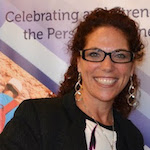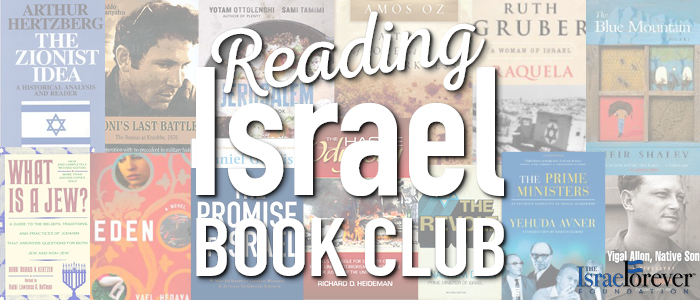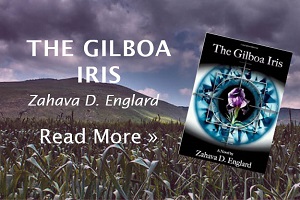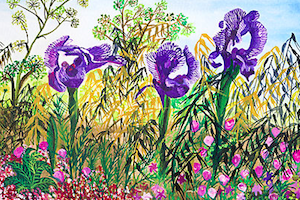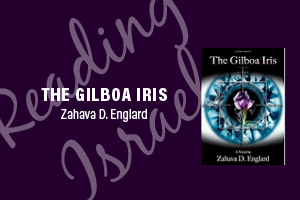What a Romance Novel Can Teach Us About Israel
Hard to believe that in a house of 3 kids, I managed to read The Gilboa Iris cover to cover in 1 day. I simply had to find out what was going to happen next.
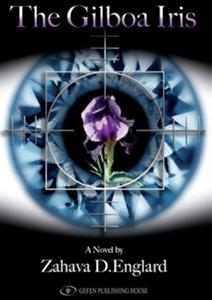
From the very beginning, I felt as if my own early experiences with Israel were coming to life as Zahava Englard exposed the many aspects of encountering, experiencing, and internalizing Israel and Israelis as an American young woman in the 80s. I’m sure more than a few of us can relate to the passion ignited by more than one hot Sabra, usually in uniform or in the categorical khakis and white shirts of the kibbutznikim, who sparked the intrigue that led many of us to simply fall in love.
Of the many things I enjoyed about the book was Zahava’s ability to incorporate the history of the land and the emotions it evokes even in the most common of circumstances. Every step, every breath is imbued with meaning. Nothing in Israel ever happens in just some irrelevant place - there is always a history, one that spans generations, eras and faiths.
While many of us might be familiar with this overwhelming sensation - whether experienced as tourists, as natives, or as Olim (immigrants) - the ease of how it is incorporated into the telling of the tale hopefully invites those who have yet to step on Israel’s soil to understand the essence, the power, the complexity of the Jewish connection to this land. The intertwining even of biblical references made me wonder: can a book be written about Israel without it? It seems that the only ones that are aim to disregard or negate that evidence of our ancestral home.
I myself don’t often read romance which I find too replete with tedious and exaggerated demonstrations of love or intimacy that very few real life relationships can achieve. But this book captured me because it was a romance of love not only between a woman and a man, but a love between a woman and the world she envelops herself within.
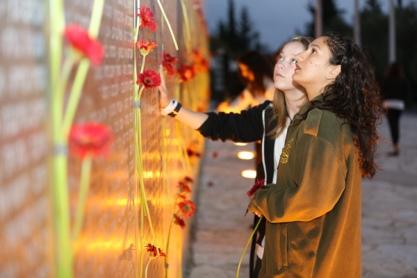
Dara’s experiences of friendship and love are uniquely female. How she relates to those around her, how she reflects even on the loss of others so common in this Land of Israel but not so easy to grasp if you haven’t witnessed the loss of a loved one yourself.
I, too, remember my very first Yom HaZikaron ceremony in a small, local community. I was overwhelmed with emotion. I was overwhelmed with pride. And yet I was completely unable to understand what these families around me were feeling at that moment, on that day, during that siren. That isn’t an easy sensation to transmit through writing. There is so much power in the faces and body language of these families, even decades later. When will that day come when our enemies will cease to cause harm and our sons and daughters, husbands, brothers, boyfriends and friends?
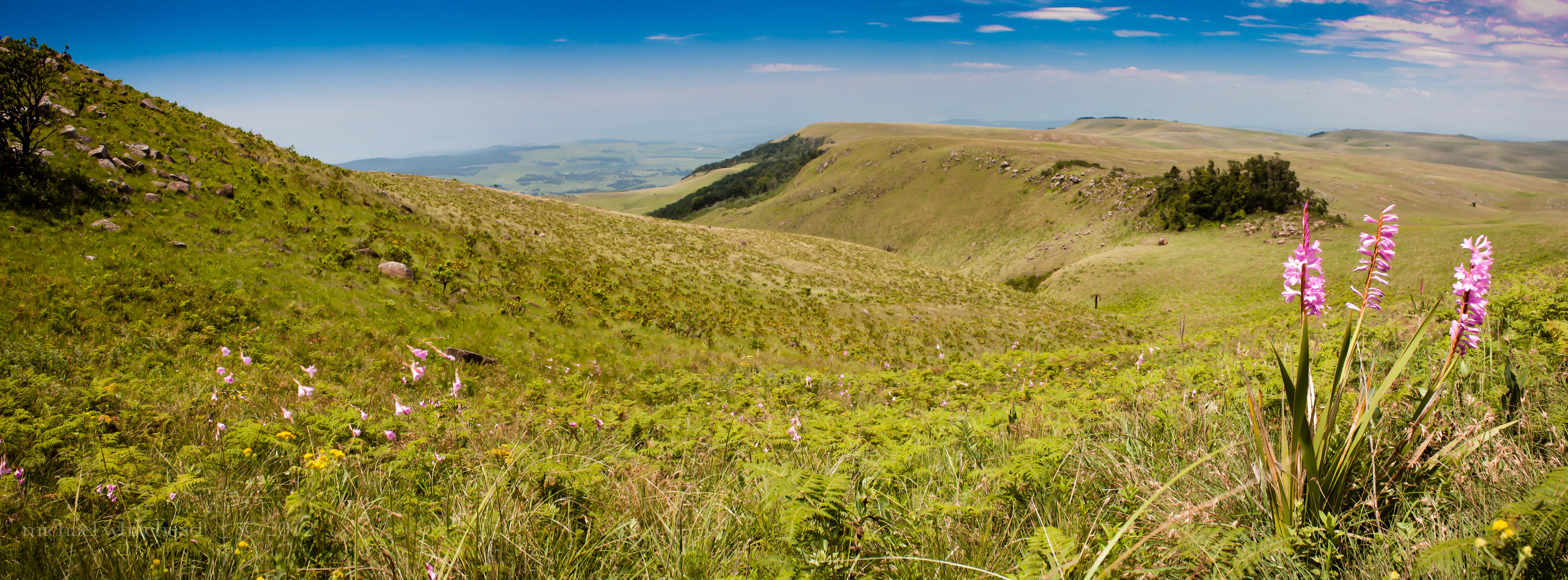
Copyright © Michael Whitehead
Interestingly enough, the name of the book, and the flower that plays a silent yet meaningful role in Dara’s life experiences, begins to bloom in March and continues to illuminate Mount Gilboa (הר גלבוע) in the Beit Shean Valley (עמק בית שאן). Unique among Israel’s immensely wide range of wildflowers, it was first documented by a plant researcher in 1876 whose descriptions of its beauty were so inspiring yet it nearly reached extinction.
Historically, Mount Gilboa is the site of the final battle between Saul and his sons against the Philistines, where they fell on their swords and died as heroes unwilling to be killed at the hands of the enemy. After this newly crowned King David wrote his “Kinah David,” Pslam of Mourning, the familiar tribute to the fallen heroes of Israel.
"Ye mountains of Gilboa, let there be no dew nor rain upon you, neither fields of choice fruits; for there the shield of the mighty was vilely cast away, the shield of Saul, not anointed with oil" (2 Samuel 1:21).
Could it be that David’s prayer was fulfilled and that the flowers would only bloom once the Shield of Saul, the legacy of David, and the Nation of Israel were again returned to their land?
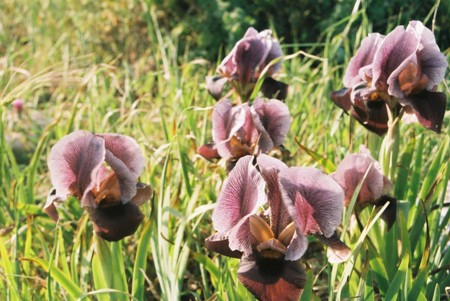
One of the most spectacular flowers of Israel, it also reflects the love for nature that is part and parcel of Israeli life. Thanks to the efforts of Palti Sela and the Israeli genius, the pollination and revival of the Gilboa Iris fields was one of the first successful endeavors for nature preservation in Israel. For that reason, it was chosen as the symbol of the Society for the Protection of Nature in Israel whose work stands as an example of the commitment to the land and its natural resources.
But it is Roni that is the hero of Israel in this twisted tale that exudes national pride, mystery, excitement, drama, humor, and love. His destiny echoes that of many of Israel’s native sons. His roughness is an expression of Israel’s reality, and, like Saul, gives insight into the ethical dilemmas so many face. And it is their abounding love that reflects the Jewish love for Israel and all she embodies - the good, the bad, the painful, the exhilarating, the eternal.
Perhaps it is true that, as Shmuley Yanklowitz writes, “Novels, when done well, are about life, and introspection upon the depths of human experience.” Perhaps having Israel as the background to a love story rather than the central focus can help the many who are seeking ways to understand and relate to Israel - not her conflict, but her meaningful existence. Perhaps it is books like The Gilboa Iris that are an essential part of our continued efforts to keep alive the nostalgia, the connection, the passion from whatever corner one might curl up and read this great book.
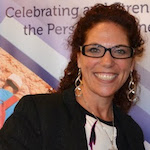
Dr. Elana Yael Heideman, Executive Director of The Israel Forever Foundation, is a dynamic and passionate educator who works creatively and collaboratively to create a stronger voice for future Jewish leadership. An independent lecturer and educational consultant, Elana’s range of activities demonstrate the intensity of her commitment to incorporating understanding of and respect for the history of the Jewish People. Through her involvement with numerous programs, projects and lectures, Elana continually seeks to facilitate dialogue and build bridges between the past, present and future.
What did You Think About The Gilboa Iris?
We Want to Know! Tell us - blog@israelforever.org
About the Author
